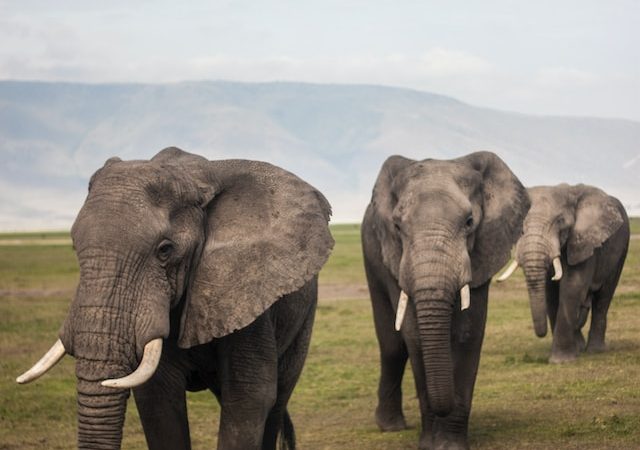Introduction: The captivating world of elephants never ceases to amaze researchers and enthusiasts alike. These majestic creatures are not only renowned for their size and intelligence but also for their intricate social dynamics. In recent years, scientists have been exploring the fascinating relationship between elephant sleep and their complex social behavior. In this article, we
Introduction: The captivating world of elephants never ceases to amaze researchers and enthusiasts alike. These majestic creatures are not only renowned for their size and intelligence but also for their intricate social dynamics. In recent years, scientists have been exploring the fascinating relationship between elephant sleep and their complex social behavior. In this article, we delve into how herd dynamics influence the sleep patterns and rest of elephants, shedding light on the remarkable interplay between sleep and social interaction.
Sleep Patterns of Elephants: Before delving into their social behavior, it is essential to understand the sleep patterns of elephants. Research suggests that elephants typically sleep for an average of 2 to 3 hours per day, often divided into short, fragmented bouts of rest. These sleep periods are characterized by lying down on their sides, an important position that allows them to relax and conserve energy. The sleep patterns of elephants differ from other mammals, highlighting their unique physiological and behavioral adaptations.
Social Structure and Sleep Synchronization: Elephants are highly social animals, living in complex family units known as herds. Their social structure is built on strong bonds and cooperative behaviors. Interestingly, elephants demonstrate sleep synchronization within their herds. Observations have shown that elephants tend to lie down to rest at the same time, often in close proximity to one another. This synchronized sleep behavior not only promotes group cohesion but also serves as a collective defense mechanism against potential threats.
Vigilance and Shared Responsibility: One of the main reasons for sleep synchronization in elephants is the need for vigilance and protection. While some members of the herd sleep, others remain awake and alert, keeping watch for potential dangers. By sharing the responsibility of staying awake, elephants ensure the safety of the entire herd. This remarkable social behavior enables them to strike a balance between obtaining necessary rest and maintaining a heightened state of awareness.
Communication and Bonding: Sleep also plays a vital role in reinforcing social bonds and communication among elephants. During periods of rest, elephants engage in low-frequency vocalizations known as rumbling. These deep, resonant calls serve as a means of communication, allowing individuals to stay connected even while resting. Rumbling not only strengthens social bonds but also contributes to the overall cohesion and coordination within the herd.
Sleep Challenges in Fragmented Herds: In some cases, human activities and habitat fragmentation can disrupt the social dynamics and sleep patterns of elephants. When herds are fragmented or when elephants are forced into smaller habitats due to human encroachment, sleep synchronization and social interaction may be compromised. The loss of traditional migratory routes and disruption of social bonds can lead to increased stress levels and sleep disturbances within fragmented herds.
Conservation Implications: Understanding the intricate relationship between sleep and social behavior in elephants has important conservation implications. Conservation efforts should aim to preserve the natural habitats and social structures that allow elephants to engage in their natural sleep behaviors. Protecting their migratory routes, minimizing human disturbances, and promoting the formation of cohesive herds can contribute to their overall well-being and sleep quality.
Conclusion: Elephants, with their complex social behavior and unique sleep patterns, offer a captivating insight into the interplay between sleep and social dynamics in the animal kingdom. The synchronization of sleep within herds, the shared responsibility of vigilance, and the communication during rest all highlight the significance of sleep in maintaining social bonds and ensuring collective safety. Recognizing the impact of herd dynamics on elephant sleep will help inform conservation strategies aimed at preserving their natural habitats and fostering their social well-being.

















Leave a Comment
Your email address will not be published. Required fields are marked with *